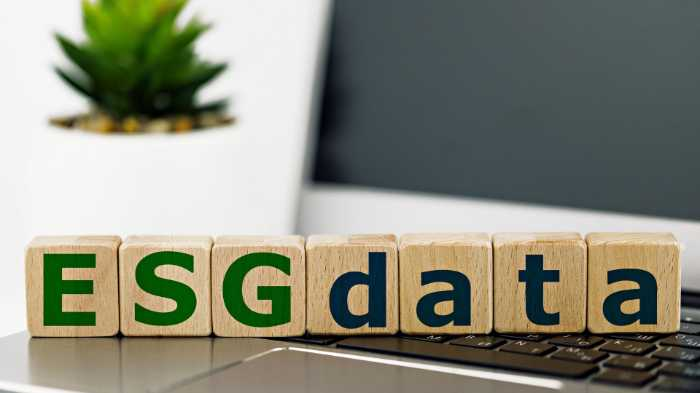
The ESG framework is a set of guidelines that companies can use to disclose their environmental, social, and governance practices. The disclosure framework is voluntary, but companies that choose to use it are required to disclose their ESG practices in a way that is consistent with SASB’s standards.
The framework is designed to help companies communicate the impacts of their ESG practices on financial performance and risk.
- What are the main ESG frameworks?
- What are the benefits of using ESG disclosure frameworks?
- What ESG disclosures are required?
- FAQs
What are the main ESG frameworks?

There are a number of frameworks available to companies looking to disclose their ESG performance. The most popular include:
- The UN Global Compact
- The GRI Guidelines
- SASB Standards
- The Carbon Disclosure Project (CDP)
- The Climate Disclosure Standards Board (CDSB)
- Task Force on Climate-Related Financial Disclosures
- The Climate Change Initiative by IIRC
Each framework has different requirements in terms of the specific information that must be disclosed, but they all aim to provide a comprehensive overview of an organization’s environmental and social impact.
1. The UN Global Compact
The UN Global Compact is the world’s largest corporate sustainability initiative, with over 10,000 participating companies from over 160 countries.
The initiative was launched in 2000, and it provides companies with a set of 10 core principles to guide their actions in the areas of human rights, labor, environment, and anti-corruption.
2. The GRI standards
The Global Reporting Initiative (GRI) is an international organization that provides guidelines for companies to disclose their environmental and social impact.
The latest version of the GRI Guidelines, released in 2016, covers a range of topics, including climate change, water security, and human rights.
3. SASB standards
The Sustainability Accounting Standards Board (SASB) is a US-based organization that provides a total of 77 standards for financial reporting of environmental, social, and governance (ESG) information.
The framework was developed by the Sustainability Accounting Standards Board (SASB) in 2011, a nonprofit organization dedicated to developing standards for sustainability reporting.
The goal of the SASB is to help investors make informed decisions about companies’ ESG metrics.
4. The Carbon Disclosure Project (CDP)
Founded in 2000 in London, UK, the Carbon Disclosure Project (CDP) is an international initiative that collects data on greenhouse gas emissions from over 13,000 companies worldwide.
CDP is best known for its annual Carbon Disclosure Leadership Index (CDLI), which ranks companies based on the quality and quantity of their disclosure of greenhouse. CDP’s goal is to help organizations make informed decisions about reducing their greenhouse gas emissions and mitigating climate change.
5. The Climate Disclosure Standards Board (CDSB)
The Climate Disclosure Standards Board is an international body that provides guidance on the disclosure of greenhouse gas emissions and climate change-related information. Founded in 2007 at the World Economic Forum, it released its first set of reporting standards in 2015.
The CDSB Framework is used by more than 375 companies across 32 countries and 10 sectors, including Coca-Cola and Nestlé. It provides guidance on how to report greenhouse gas emissions and climate-related financial risks.
6. Task Force on Climate-Related Financial Disclosures
The Task Force on Climate-Related Financial Disclosures (TCFD) is an initiative of the Financial Stability Board (FSB), launched in December 2015.
The goal of the TCFD is to develop voluntary, consistent climate-related financial information for use by companies in providing information to investors, lenders, and insurers.
The TCFD comprises representatives from the business, investor, accounting, actuarial, and insurance communities.
You can’t improve what you don’t measure.
Free Verified Carbon Calculators.
Erase Your Carbon Footprint in less than 5 Minutes
Personal Carbon Footprint Calculator
Business Carbon Footprint Calculator
7. The Climate Change Initiative of the International Integrated Reporting Council (IIRC)
The Climate Change Initiative is a project of the IIRC that aims to improve corporate reporting on climate-related risks and opportunities. Launched in August 2010, the aim was to establish a reporting framework that was accepted worldwide. This initiative was undertaken with the objective of making long-term progress in mitigating climate risks.
What are the benefits of using ESG disclosure frameworks?

Using ESG disclosure frameworks can help companies to:
1. Enhance comparability of ESG data
ESG reporting frameworks provide a common language for businesses to communicate their environmental, social, and governance performance. By using the same frameworks, companies can make their ESG reports more comparable across markets and sectors.
This enhanced comparability makes it easier for investors to identify the best performers in each category and make informed investment decisions. In addition, it allows businesses to benchmark their performance against their peers and set ambitious sustainability targets. As more companies adopt ESG disclosure frameworks, the benefits of enhanced comparability will only continue to grow.
2. Encourage best practices in ESG reporting
One of the benefits of using ESG frameworks is that they can help to encourage best ESG practices. By providing a common set of standards and guidelines, disclosure frameworks help to level the playing field for companies, promoting transparency and comparability.
In addition, by requiring companies to disclose their ESG performance on a regular basis, disclosure frameworks can also help to drive continuous improvement. As disclosure requirements become more stringent over time, companies are likely to invest more resources in addressing their ESG risks and opportunities, leading to better overall performance. In sum, disclosure frameworks play an important role in promoting best practices in ESG reporting.
3. Support engagement with investors, analysts, and other stakeholders
Engagement with investors, analysts, and other stakeholders on sustainability performance is important for many reasons. It helps to ensure that companies are considering all the factors that can affect their business, and it allows investors to hold companies accountable for their actions.
Disclosure frameworks provide a structure for this engagement, helping companies to communicate their ESG policies and performance in a clear and concise way. This, in turn, makes it easier for investors to assess risk and make informed decisions about where to allocate their capital. In short, disclosure frameworks can play a crucial role in promoting responsible investment and supporting sustainable business practices.
4. Enhance corporate reputation and brand value
Many companies are increasingly incorporating environmental, social, and governance (ESG) issues into their disclosure frameworks. This shift is driven in part by the belief that ESG reporting can enhance corporate reputation and brand value. There is evidence to support this claim. A study of large banks found that those with higher ESG scores had a lower cost of debt and equity.
Another study found that companies with strong ESG practices were perceived as having better governance and were, therefore, less likely to be the target of activist investors. In addition, a number of surveys have found that consumers are willing to pay more for products from companies with strong ESG records. Consequently, it seems clear that ESG disclosure can be a valuable tool for enhancing corporate reputation and brand value.
5. Improve risk management processes
One of the benefits of using ESG disclosure frameworks is that they can help improve risk management processes. By collecting and analyzing data on environmental, social, and governance factors, companies can identify risks that might otherwise be overlooked. This information can then be used to develop strategies for mitigating or avoiding those risks.
For example, a company that relies heavily on natural resources might use ESG data to assess the risk of disruptions to its supply chain. By understanding the potential for such disruptions, the company can take steps to reduce their likelihood or to plan for them more effectively. In this way, ESG reporting frameworks can help companies strengthen their risk management processes and ultimately improve their financial performance.
6. Generate new business opportunities
A 2017 study by PwC found that 82% of institutional investors surveyed believe ESG information is essential when making investment decisions. Moreover, over half of the respondents said they had divested from a company due to environmental concerns, and nearly as many cited social issues. These numbers underscore the growing importance of ESG factors in the investment world. By using ESG reporting frameworks, companies can signal their commitment to sustainability and responsible business practices, which can, in turn, generate new business opportunities.
For example, a company that discloses its carbon emissions using an internationally recognized reporting standard is more likely to be viewed favorably by potential investors who are looking to put their money into sustainable companies. In addition, disclosing ESG information can help a company make strategies that work for them in the long run. By doing so, companies can not only improve their financial performance but also position themselves to take advantage of new business opportunities.
7. Standardize reporting process
Disclosure frameworks can help standardize how companies report their ESG data, making it easier to identify trends and track progress over time. By standardization, disclosure frameworks can play an important role in helping companies improve their ESG performance.
What ESG disclosures are required?

There are a few types of disclosures companies might make when it comes to their environmental, social, and governance policies and practices. Here are some examples:
1. Carbon footprint

A company might publicly disclose its carbon footprint. This would require the company to measure and report on its total emissions of greenhouse gases, including through its supply chain.
The company might also report on its plans to reduce emissions, such as by investing in renewable energy or offsetting emissions through carbon credits.
2. Water usage

A company might report on its water usage and policies related to water conservation. This would require the company to measure and report on its total water consumption, as well as any plans to reduce water usage.
The company might also report on its policies around wastewater disposal, including any treatment or recycling of wastewater.
Go Carbon Neutral – in only 3 Minutes!
3. Diversity and inclusion

A company might report on its policies and practices related to diversity and inclusion. This would require the company to report on the percentage of employees from different groups, such as women, people of colour, LGBTQ+ people, etc.
The company might also report on its plans to increase diversity and inclusion, such as through recruiting and training programs.
4. Sustainability standards

A company might report on its sustainability efforts, such as its progress toward meeting environmental or social goals. This would require the company to set specific sustainability goals and then report on its progress toward those goals.
The company might also report on its plans for future sustainability initiatives, such as investing in renewable energy or developing more sustainable products.
ESG frameworks help businesses by providing a structure for reporting on environmental, social and governance policies and practices. This can help businesses to be more transparent about their operations and to make progress toward sustainability goals. The framework can also help investors make informed decisions about which companies to invest in.
Conclusion
ESG frameworks help businesses by providing a structure for reporting on environmental, social, and governance policies and practices. This can help businesses to be more transparent about their operations and make progress toward sustainability goals. The framework can also help investors to make informed decisions about which companies to invest in. So if you want your company’s ESG disclosures to really shine, consider using a disclosure framework.

FAQs
Is every company bound to disclose its ESG reports?
Some companies might be required to disclose their ESG information by law or regulation. For instance, the Securities and Exchange Commission (SEC) has issued guidance on the disclosure of climate-related risks for publicly traded companies. However, even if a company is not legally required to disclose its ESG information, it may still choose to do so voluntarily in order to provide stakeholders with a greater understanding of its business practices.
How many ESG frameworks can a company follow?
As many as they like! ESG frameworks provide guidelines for how companies can report on their environmental, social, and governance (ESG) performance.
However, companies are not limited to following just one framework. In fact, many companies choose to report their ESG performance using multiple frameworks in order to give stakeholders a more comprehensive view of their sustainability efforts.
What are the challenges of reporting under an ESG framework?
There can be various challenges associated with reporting under an ESG framework. For instance, companies may struggle to obtain the data necessary to meet the reporting requirements. Additionally, companies may find it challenging to communicate their ESG performance in a way that is clear and concise for stakeholders. However, the benefits of reporting under an ESG framework typically outweigh the challenges. When done correctly, reporting can help companies to improve their environmental and social performance, as well as build trust with stakeholders.
Which top companies are famous for their ESG frameworks?
There are many companies that have made a commitment to ESG reporting. Some of the most famous include Coca-Cola, International Paper Company, General Electric, PPG Industries, FMC Corporation, Corteva, and Morgan Stanley.
What is a sustainability reporting ecosystem?
It is a system where all the organizations that are involved in sustainability development can interact with each other. The ecosystem includes various stakeholders such as businesses, rating agencies, investors, and NGOs. It also includes multiple platforms and tools that companies can use to report their sustainability performance.
What is the Global Reporting Initiative?
The Global Reporting Initiative (GRI) is a nonprofit organization that provides guidelines for sustainability reports. The GRI standards are followed by companies all over the world to report their ESG frameworks.
How does the integrated reporting framework help ESG frameworks?
The ESG reporting framework helps the global financial system by providing guidelines for how companies can report their ESG performance. This allows investors to make more informed decisions about responsible investment. Additionally, it helps to create a level playing field for companies, as all companies are required to report their ESG performance (Holistic Approach) in the same way.
You might also want to read…
What is the Global Reporting Initiative?
How to Write a Sustainability Report

Dean Emerick is a curator on sustainability issues with ESG The Report, an online resource for SMEs and Investment professionals focusing on ESG principles. Their primary goal is to help middle-market companies automate Impact Reporting with ESG Software. Leveraging the power of AI, machine learning, and AWS to transition to a sustainable business model. Serving clients in the United States, Canada, UK, Europe, and the global community. If you want to get started, don’t forget to Get the Checklist! ✅
